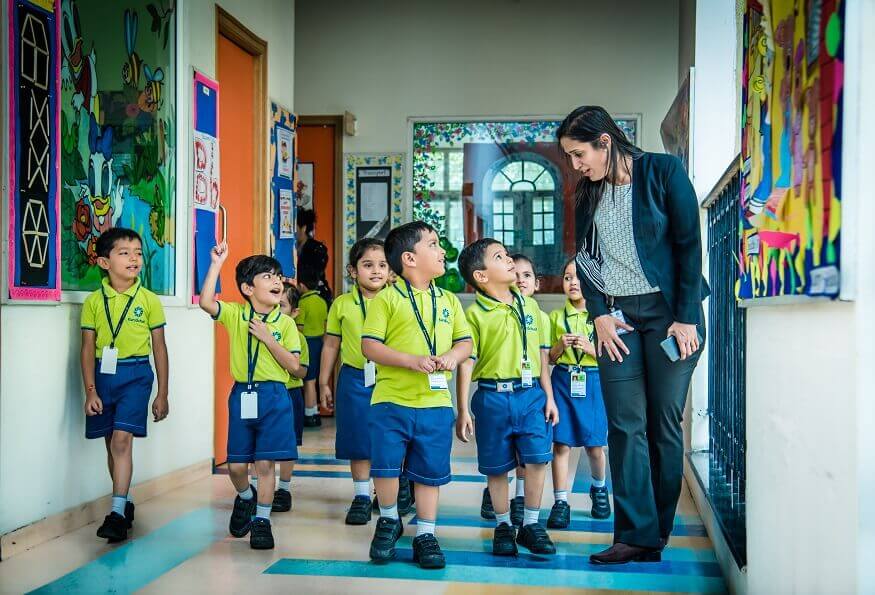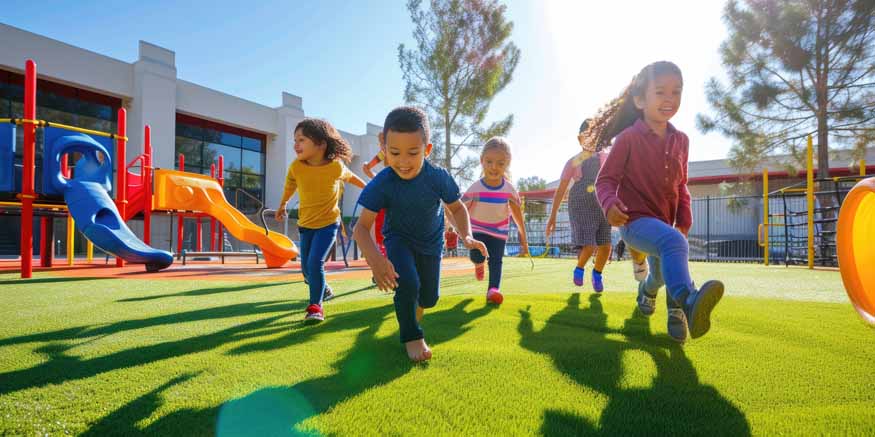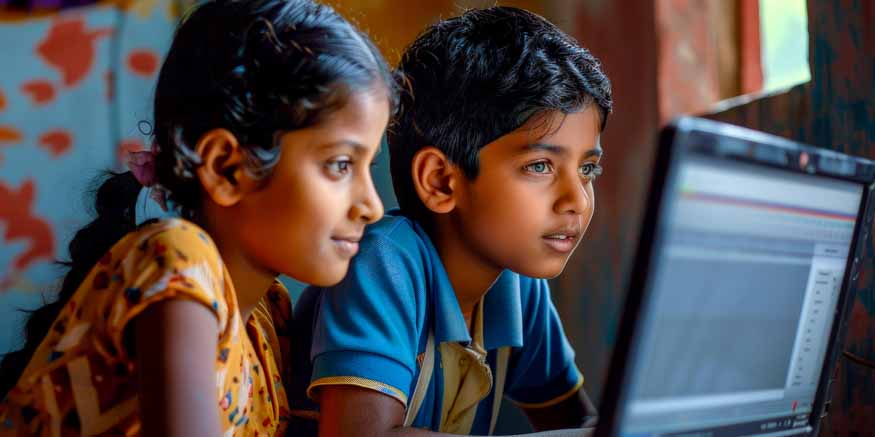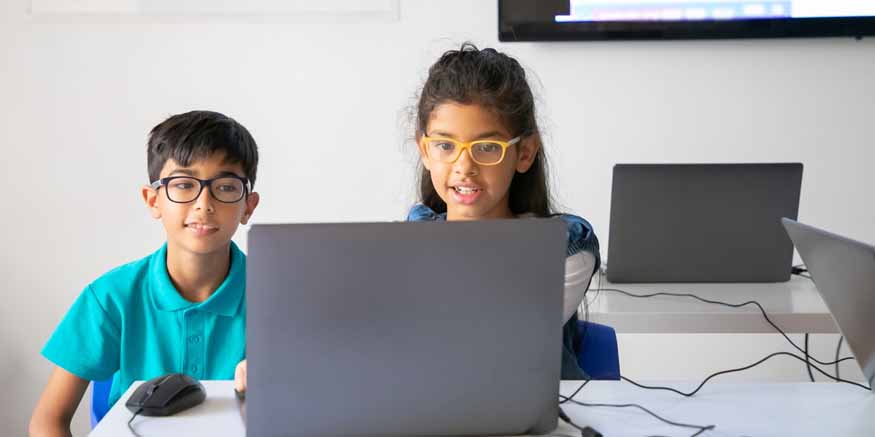What are skills? Well, a skill is the learned ability to act with determined results with good execution often within a given amount of time, with enthusiasm and energy, or all. Skills are often divided into domain-general and domain-specific skills.
One may ask why skills are so important to us. Developing skills is important because it allows us to improve attributes and qualities vital to effective place and performance. By developing these skills, one can also begin the path to personal development, which can help maximise the potential and achieve career goals in record time.
The future-ready children are well-rounded with abilities and various personalities. They have good social skills like verbal and non-verbal communication, listening, negotiation, decision-making, problem-solving, and assertiveness. But today we will specifically dig into interpersonal skills for kids. So, we will learn what interpersonal skills are and understand the definition as well as look at some examples.
One shows interpersonal skills by the way they behave towards other people. A person with good interpersonal skills will be kind and supportive, empathetic and patient, as well as respectful in the way they do things with others. Typically, they will be a pleasure to be around and are mostly called a people’s person.
So, why are interpersonal skills important for students and what are they? Well, interpersonal skills in kids are the skills required to effectively communicate, interact, and work with individuals and groups. People with good interpersonal skills are strong verbal and non-verbal communicators and are often considered to be great with people. We must all know the importance of interpersonal skills and make the best use of the resources around us to perfect the skill.
Interpersonal skills involve the ability to communicate and build relationships with others. It is often called ‘people skills’, as people with the skill tend to incorporate both the intrinsic or inherent personality traits and how one learns to handle specific social situations.
So, one may ask what is the meaning of interpersonal skills especially for kids? The willingness and the ability to initiate activities with other people, the willingness to join an activity with other people, the ability to begin and continue a conversation without distractions. The use of an appropriate amount of assertiveness to communicate needs, desires, beliefs and ideas, having all of this is the meaning of interpersonal skills.
Mentioned below are some interpersonal skills for kids and adults:
- Verbal Communication – What we say and how we say it.
- Non-Verbal Communication – What we communicate without words, through body language, or tone of voice.
- Listening Skills – How we interpret both the verbal and non-verbal messages sent by others.
Some examples of interpersonal skills and interpersonal communication skills includes public speaking, presentation skills, negotiation, and mediation.
Also among the examples of interpersonal communication are: Phone calls. A person has to rely on good verbal communication skills because we can only hear a person’s voice on a phone call. Presentations. A person uses all four types of interpersonal communication to present information. Similarly there are email, performing in a play and texting. Now that we know so much about interpersonal skills and interpersonal communication one may wonder how to teach interpersonal skills to kids. So here are some tips to help you and your child develop interpersonal skills.
- Good communication starts at home.
- Talk about the different ways to communicate with each other.
- Encourage hobbies and interests.
- Guide them through difficult times.
- Teach them the importance of empathy.
Now that we know how to introduce interpersonal skills to kids, here are some tips on how to improve interpersonal skills in kids:
- Cultivate a positive outlook.
- Control your emotions.
- Acknowledge others’ expertise.
- Show true interest in your peers.
- Find one good trait in every person.
- Practice active listening.
- Be assertive.
- Practice empathy.
The examples of interpersonal communication skills include:
- Verbal and nonverbal communication.
- Body language.
- Public speaking.
- Presentation skills.
- Negotiation.
- Mediation.
- Persuasion.
- Active listening.
- Overall listening skills.
- Problem-solving.
- Decision-making.
- Assertiveness.
Verbal Communication is all about the words and tone of voice a child uses to express themself. So, how does a child develop and improve interpersonal skills?
- Observe successful interactions.
- Identify ways to practice.
- Solicit feedback.
- Reflect and modify.
- Keep interactions focused.
- Leverage recording technology.
- Stay positive.
Remember to always establish goals. Setting meaningful goals is an important first step for improving and developing a child’s interpersonal skills. Necessary interpersonal skills for kids are mentioned below. These are some interpersonal skills your kid must have to succeed in life because they are the most important interpersonal skills. There are four categories of interpersonal behaviour which include: verbal, aural (listening), written, and non-verbal communication. Developing skills in these behavioral categories will help you excel in your own role. They are also important if you want to lead a team.
Interpersonal skills are vital for kids, and family communication and relationships play an imperative role. Making friends and engaging in teamwork. Peer communication, peer relationships, peer group interaction. Prosocial behavior through which people benefit others by voluntarily helping, sharing, and cooperating with others.
It is extremely important to have positive interpersonal skills, which include verbal and nonverbal communication. These skills encompass the ability to handle conflicts, work with teams, show empathy, always listen, and maintain a positive attitude towards everything. Being flexible, positive, attentive, and communicating effectively are a few important criteria for success in life.
A child needs to be friendly with everyone around them in school and everywhere else. Having interpersonal communication with other kids helps children to make new friends easily and have a similar mindset as well as similar goals in life. People with the same mindset and attitude instill a feeling of cooperation and this helps in achieving the goals easily and hence every school and parent must concentrate on interpersonal skills in kids.
At EuroSchool, we concentrate on developing interpersonal skills in kids because we know the importance of interpersonal skills. We ensure every student and staff member is aware and is well informed of the interpersonal skills meaning so the students can benefit the best of everything.









